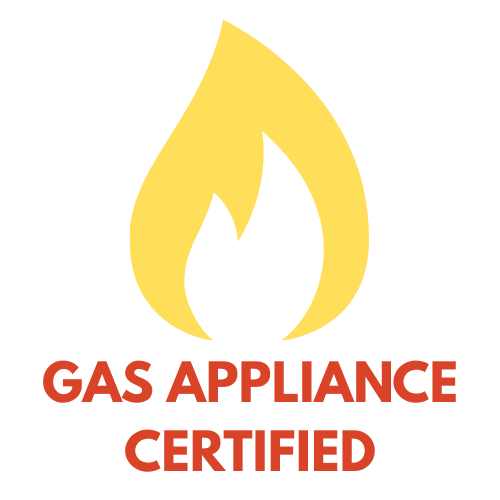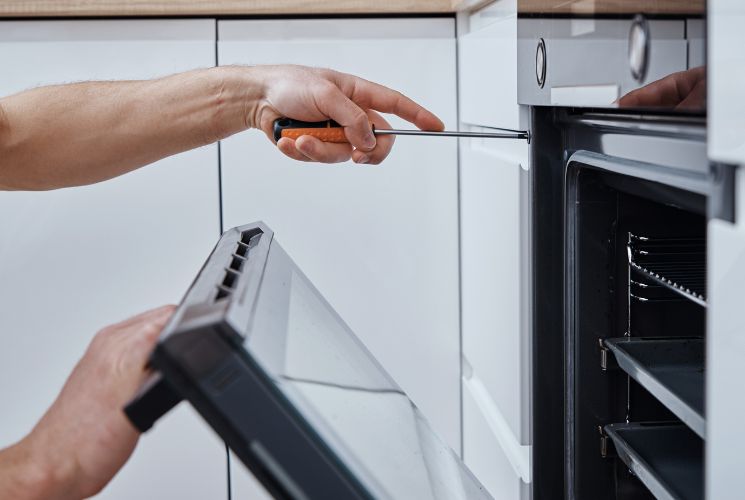DIY Appliance Repair: Quick Fixes You Can Try Before Calling a Pro
Appliances make our lives easier- until they stop working. Whether it’s a fridge that won’t cool, a washing machine that won’t spin, or a dryer that’s making weird noises, a broken appliance can disrupt your routine. Before you panic or immediately call a professional, there are some DIY appliance repairs you can safely try at home.
Here’s a guide to quick fixes, common appliance problems, and when it’s time to call the experts at ASAP Service.
1. Refrigerator Not Cooling Properly
A fridge that isn’t cooling can quickly become a big problem. Luckily, some fixes are straightforward:
Quick Fixes:
- Check the temperature settings: Sometimes the dial gets bumped or reset. Make sure your fridge is set to 37-40°F and your freezer to 0°F. A quick adjustment can save a lot of stress.
- Clean the condenser coils: Dusty coils at the back or underneath reduce efficiency. Carefully vacuum or brush off the dust every few months.
- Inspect the door seals: Worn, cracked, or dirty gaskets allow cold air to escape. Wiping them down with warm water or replacing damaged seals can improve cooling.
- Avoid overloading: Too much food can block airflow inside, causing uneven cooling. Make sure air vents aren’t blocked.
Extra Tips:
- Keep your fridge a few inches away from walls to allow proper airflow.
- Allow hot leftovers to cool slightly before storing- they make the compressor work harder.
When to Call ASAP:
If the fridge still isn’t cooling, the issue could be the compressor, thermostat, or refrigerant.These require professional fridge repair.

2. Washing Machine Won’t Spin or Drain
A washing machine that refuses to spin or drain can interrupt your whole laundry routine. Many problems are easy to troubleshoot:
Quick Fixes:
- Check the lid switch (top-load) or door latch (front-load): Machines won’t spin if they think the door isn’t closed properly.
- Inspect hoses for clogs or kinks: Detach the hoses to ensure water can flow freely. Coins, hair, and lint can block drainage.
- Balance the load: Overloading or unevenly distributing clothes prevents the drum from spinning. Spread items evenly and avoid mixing heavy and light garments.
- Clean detergent compartments and drum: Residue from detergent or fabric softener can affect performance over time.
Extra Tips:
- Use the correct type and amount of detergent. Too much can cause buildup, while too little may leave clothes dirty.
- Run a monthly maintenance cycle with hot water and vinegar to clear residue.
When to Call ASAP:
Persistent spinning or draining issues may indicate a problem with the pump, motor, or electronic control board. Attempting these repairs yourself can be risky.
3. Dryer Not Heating
A dryer that runs but doesn’t heat is inconvenient and can prolong drying time significantly. Many issues have simple solutions:
Quick Fixes:
- Clean the lint filter and vent: Blocked vents reduce airflow and prevent heating. Cleaning regularly is not just about performance- it’s also a fire safety measure.
- Check the breaker or fuse: Electric dryers may stop heating if the circuit trips. Reset the breaker or replace the fuse if needed.
- Inspect the heating element: Some dryers allow visual inspection. Look for broken coils or obvious damage.
Extra Tips:
- Ensure the dryer isn’t overloaded, this can prevent proper heating and increase wear.
- Occasionally clean behind the dryer to remove lint buildup around the vent pipe.
Common Mistakes:
- Ignoring unusual smells, sparks, or smoke- these are signs of electrical issues.
- Using sharp tools to clean vents, which can damage ducting.
When to Call ASAP:
If the quick fixes don’t help the heat, there may be a faulty element, thermostat, or wiring problem, however for these issue should be handle by expert dryer repair technicians.

4. Oven or Stove Issues
Cooking appliances are essential, and minor problems can often be fixed at home:
Quick Fixes:
- Check the power source: Electric stoves should be plugged in with breakers on; gas stoves need the gas supply open.
- Replace burners or igniters: Burnt-out burners or faulty igniters can often be swapped out quickly.
- Clean the oven: Excess grease and food buildup can affect heating and cooking performance.
Extra Tips:
- Keep your oven racks and interior clean to maintain even cooking.
- For gas stoves, make sure the burner ports are free of food debris to ensure proper flame.
Common Mistakes:
- Using harsh cleaners on self-cleaning ovens without reading the manual.
- Ignoring small gas leaks- these require professional handling immediately.
When to Call ASAP:
Uneven cooking, persistent heating problems, or gas ignition troubles are indications that professional oven repair experts should be called in. Doing repairs on your own can be risky and can nullify warranties.
5. Issues With The Dishwasher
It can be annoying when a dishwasher leaks, doesn’t clean effectively, or produces odd noises, but there are easy fixes for these issues:
Quick Fixes:
- Clean the filter and spray arms: Food debris can block water flow and reduce cleaning efficiency.
- Check the drain hose: Make sure it’s free from kinks or clogs.
- Inspect door seals: Leaky gaskets can be cleaned or replaced to prevent water from escaping.
Extra Tips:
- Don’t overfill your dishwasher since water requires room to move around.
- To avoid accumulation, do a monthly maintenance cycle with vinegar or a dishwasher cleaning.
Typical Errors:
- Using ordinary dish soap rather than dishwasher detergent may result in an excessive amount of suds.
- Ignoring error codes- they often indicate electrical or pump problems.
When to Call ASAP:
Leaks, persistent cleaning issues, or loud noises often indicate more serious problems. In this case, it’s best to call professional for dishwasher repairs.
DIY Appliance Repair: Know Your Limits
DIY troubleshooting can save time and money- but modern appliances are complex, with delicate electronics, sensors, and safety mechanisms. Attempting major repairs yourself can lead to injury or further damage.
Tips for Safe DIY Repairs:
- Always unplug or turn off power before inspecting appliances.
- Follow manufacturer instructions carefully.
- Keep small children and pets away while repairing.
- Use proper tools and protective gear.
When in Doubt:
If your appliance still isn’t functioning after basic troubleshooting, it’s time to call help. Our certified technicians handle all major appliances safely, efficiently, and reliably.
When to Call the Pros
DIY appliance repairs are great for minor issues like cleaning filters, adjusting settings, or checking hoses and seals. But when problems persist or involve electrical, gas, or complex mechanical components, it’s safer and more effective to call the experts.
ASAP Repair offers:
- Fast, reliable repairs to get your appliances back in working order.
- Certified technicians trained on all major brands and models.
Don’t risk injury or further damage- contact ASAP Repair for professional appliance repair. We’ll have your home running smoothly again in no time.


